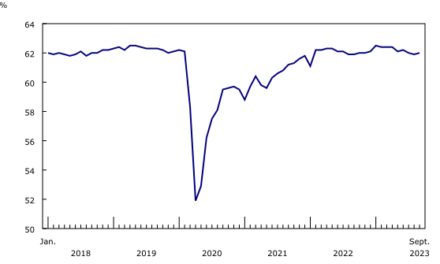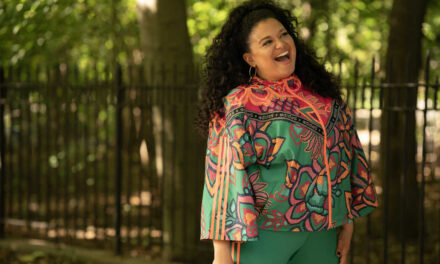
Marine biologist Imani Black founded the nonprofit organization Minorities in Aquaculture.
Editor’s note: This interview is the first in a series highlighting young professionals at work in the Chesapeake Bay arena. Look for audio versions in upcoming episodes of our Chesapeake Uncharted podcast.
Imani Black has saltwater in her veins. Her family tree boasts a great, great uncle who harvested oysters off Maryland’s Dorchester County as far back as the 1800s. The ensuing decades were populated by a mix of uncles, cousins and grandfathers – all engaged in some fashion in the Chesapeake Bay’s seafood industry.
Now, it’s just her.
Recent decades have seen African Americans virtually disappear from workboats, shucking houses and docks around the Bay. Black, a native of Maryland’s Eastern Shore, is working to bring them back.
After graduating from Old Dominion University with a degree in marine biology, she worked for oyster aquaculture operations in Virginia and Maryland. Black loved the work. But she often felt lonely and discouraged as the only woman or person of color on staff.
In 2020, she founded Minorities in Aquaculture. The group has amassed scores of members and raised tens of thousands of dollars to support mini-grants and internships for women interested in careers in the industry. Meanwhile, Black plans to complete her master’s degree from the University of Maryland in January. Her thesis: the history of African Americans who worked and continue to work on the Bay.
Black spoke with the Bay Journal at the UMCES Horn Point Lab outside Cambridge, where she has been working to grow and breed oysters in the facility’s hatchery. The interview has been edited for length and clarity.
Question: What’s your Chesapeake Bay origin story?
Answer: Growing up on the Eastern Shore and being in a coastal community, a lot of my childhood activities were around the water or seafood. My family used to go fishing every Sunday together. But I got really interested in Chesapeake Bay restoration when I was 7, at a science camp here at Horn Point. That’s really where I fell in love with the Bay and started to understand that this is something that I might want to do as a career.
Q: What led you to get a graduate degree in environmental science?
A: I unexpectedly lost my job in 2020. That was a really pivotal moment in my life. That was right when the Black Lives Matter movement started to get off the ground. That really affected me as a person of color. I was asking myself, was I set on the career that I was dedicating my life to? Did I really feel like it was safe? Did I really feel like it was inclusive?
I can only speak from my experience, right? But for me, there was this conflicting moment when I realized it didn’t really matter what skin color I had. It only mattered that I was a female. I had gone from the Chesapeake Bay Foundation, which was a team full of women, to the commercial end, which was not like that. I was the only woman out of 25 guys on an oyster farm — besides, you know, the owner’s wife. I had to learn how to survive in that atmosphere and dig my heels in and be like, “No, I’m here, and I can do this.’ ”
Q: What is your goal with Minorities in Aquaculture?
A: It just started with wanting to find other women of color who were in my space. I’d never worked with another woman of color who was in a leadership role or who owned a farm or was a hatchery manager or anything like that. I started asking people who they knew who was a person of color in that role, and no one could give me an answer. It just sort of exploded from there. Now, we’re really the bridge between underrepresented demographics and the workforce development of aquaculture.

Marine biologist Imani Black, founder of Minorities in Aquaculture, is pursuing a graduate degree in environmental science at the University of Maryland Center for Environmental Science.
Q: You’re using the term “minorities.” How do you define that term?
A: I’ve had to think about the definition of minorities a little bit differently from most people. Some people in my community don’t like the word “minorities” because it automatically puts us kind of in that “other” [category]. I know it is a trigger. But we’re also about diversification of skill, diversification of ideas and knowledge. So, for us, it’s the underrepresented demographics of aquaculture, specifically. Women in general, are an underrepresented group. Women of color are obviously a double minority. There are also men of color, LGBTQI-plus, disabilities, prison reform — it’s all the things that we’re trying to bring into that space now.
Q: Why did you choose the Bay’s Black history for your master’s project?
A: My overall thesis is looking at the historic involvement of African Americans and the Chesapeake’s big commercial fisheries. That story has been hot these last couple of years. A lot of people want to write about it. I love the spotlight on it. But for me, there hasn’t been a recent write-up of the experiences of Black captains written by an African American — by someone in our community telling the story of our community. I really want to find out what were the domino effects of how did we go to now only having 12 Black captains.
Q: How do you approach the research?
A: My data, in that sense, is oral histories. That’s a common thing for anthropology. But it’s super powerful because those 12 Black captains have never been recorded and never been asked about their experience. Like, what was it like for you? How did you get into it? How long have you been into all those things? I’m interviewing them as well as Bay historians, naturalists, journalists, authors and members of historically Black fishing communities.
Q: What are your thoughts on the Chesapeake Bay restoration? Do you think it’s heading in the right direction?
A: Definitely, for sure. Being here at Horn Point, I’m surrounded by colleagues who are doing really great research. But I think, for me, we’re heading in the right direction because social sciences are getting involved. People are not only just caring about the Bay and the ecological changes that have happened, but they’re caring about how those ecological changes have changed our community. We can’t move forward without the whole picture.
Q: What do you see in the future for Minorities in Aquaculture?
A: I feel like we’re on a fast trajectory. And I’m super excited about that. I feel like this is our transformative year when the vision is getting clearer. When I started it, I think some people were wondering if this was just a passion project. But no, we are an official [registered nonprofit]. We are the only minority-focused workforce development nonprofit in aquaculture globally right now. That’s a big shoe to fill, and I’m ready to fill it. I just want to be, for lack of better words, a crusader for aquaculture. One, because I care so much about it, but also, I want to be known for being a long-lasting steward of the environment. There’s not a box that you have to fit in to be in the space. You can create your own box.





